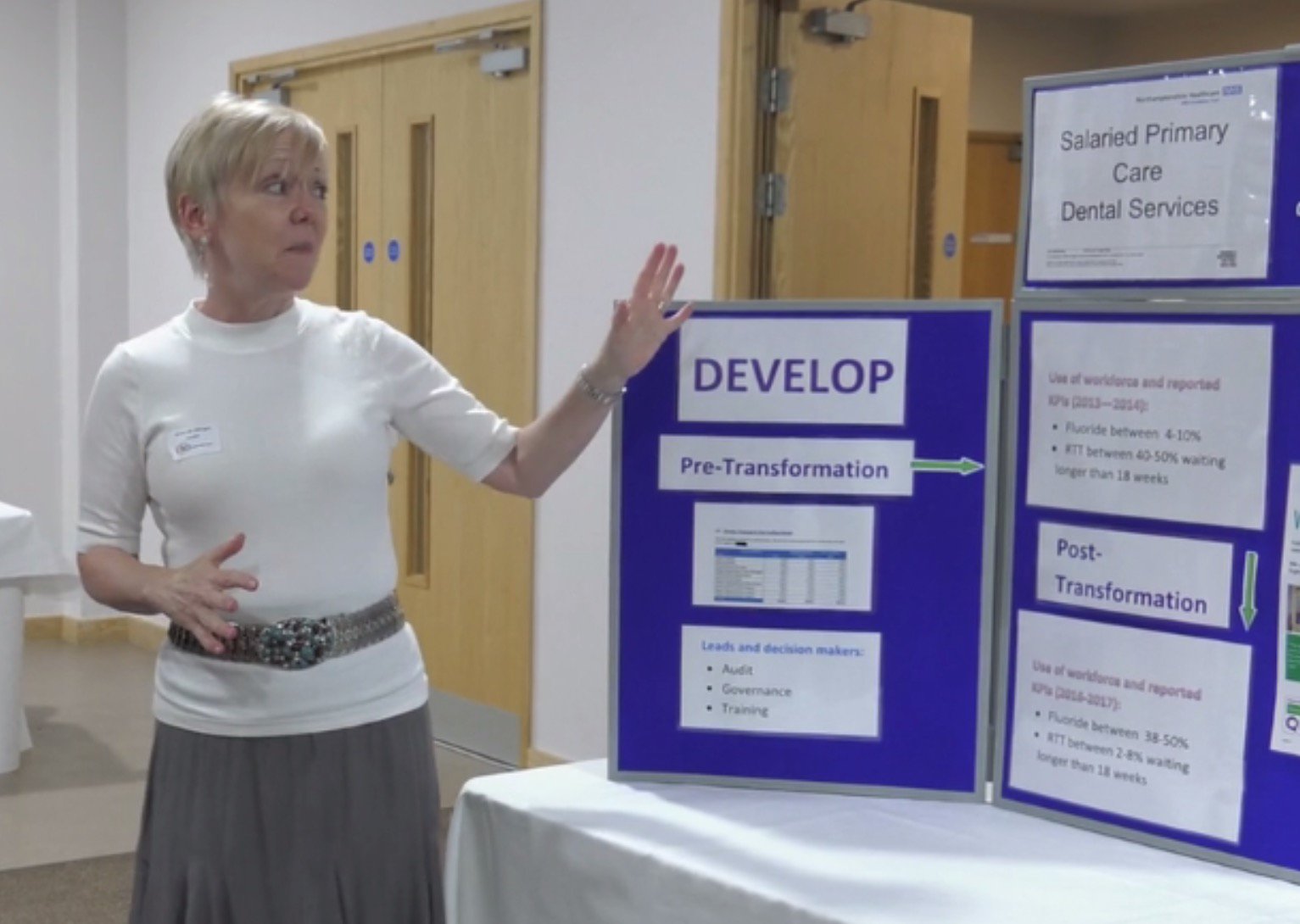 The Salaried Primary Care Dental Services (SPCDS) is for children and adults who cannot access care within general dental practice.
The Salaried Primary Care Dental Services (SPCDS) is for children and adults who cannot access care within general dental practice.This may be because they have special needs, learning disabilities, significant health problems or other issues that prevent them from accessing a regular service. We also provide minor oral surgery that cannot be safely managed in general practice and we provide a county wide oral health promotion service.
In 2013-2014 the CQC gave our service an overall rating of ‘Requires Improvement’.
At this time we were not achieving our KPIs, for example, the application of a preventative fluoride varnish was only being applied to between 4%-10% of the patients as opposed to the required 30%. Furthermore our 18 week Referral to Treat Time (RTT) was too great, at this time 40%-50% of referred patients were waiting greater than 18 weeks.
Within the service we have qualified dental nurses with additional skills, these additional assets were not being fully utilised. The nurses have vast experience supporting and working with specialist dentists, learning and developing complex patient management skills on a daily basis.
Therefore, the decision was taken to relinquish the dental therapy roles and create two Extended Duty Dental Nurses (EDDN ) posts. The EDDNs hold their own patient case load and are supported by a dental nurse. They work to a prescription from a dentist, working with patients to improve dental health, for example, applying fluoride varnish and assisting patients to become acclimatised within the dental environment.
Within the transformation, it was recognised that we had to become better at delivering a robust service, within financial constraints, whilst still seeking to improve patient care and outcomes. The implementation of change was facilitated through a process of planned clinical audits, measuring the on-going processes, against explicit criteria. Vigorous, on-going, clinical governance creates an environment, in which excellence in clinical care can continue to flourish. Time for our team to reflect, train and develop personally, is also an important factor for which we schedule and value.
In early 2017, the Care Quality Commission returned to the Trust and gave the SPCDS an overall rating of 'Outstanding’.
The CQC said of the service: ‘Staff responded to patients’ needs at each clinic we inspected. The service kept treatment delays for routine dental treatment within reasonable limits through effective resource management. Effective multidisciplinary team working ensured the service provided patients with care that met their needs, at the right time and in the right place.’
As a result of implemented change the chair occupancy has increased and the fluoride applications post transformation is delivered to between 38%-50% of patients. The increase in fluoride application will benefit the oral health of our patients and reduce the likelihood of dental disease in the future.
The referral to treatment time has measurably improved, with 95% of patients starting treatment within 18 weeks. These shortened referral times will benefit service users as they will no longer have to wait as long to receive specialist care from our service thus having a positive impact on service user’s oral health, reducing the risk of pain, infection and the requirement for more complex treatments.
As we continue to cultivate the service, we recognise the importance of growing our workforce in-house, through training, qualifications and mentoring. Our dental nurses of the future may join us as apprentices and go on to achieve a Foundation Degree (Fdsc). Therefore, this will enable dental nurses to extend their scope of practice, as permitted by our governing body, and the changing needs of the service.
Dentists come to us to gain experience and expertise in special care dentistry; presently we have dentists on the specialist register, clinical fellows and dentists embarking on a period of study, in order to gain an MSc in Paediatric Dentistry. These specialist skills enable us to work with increasingly complex patients, within an ageing population.
#weareNHFT

